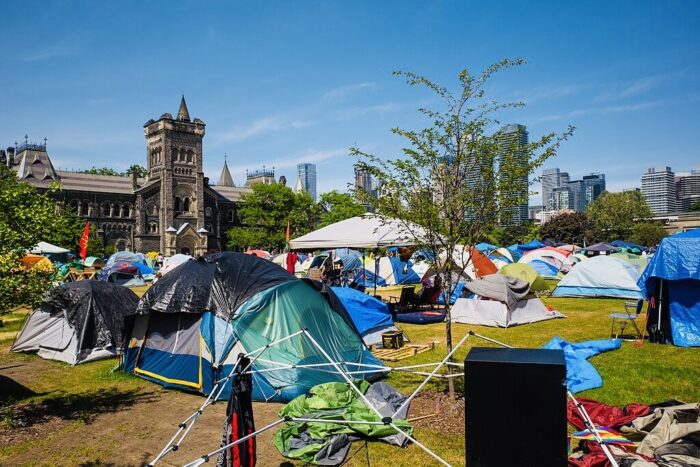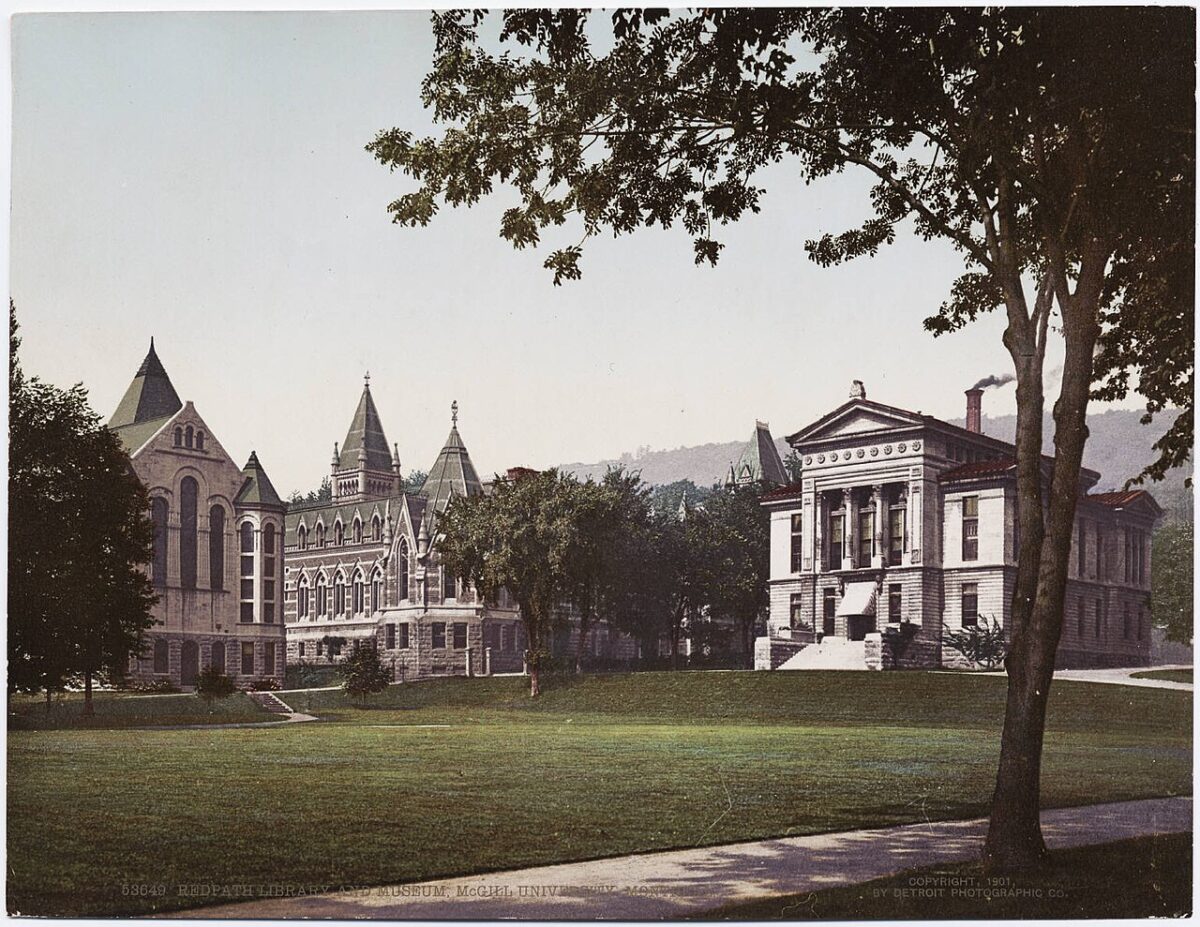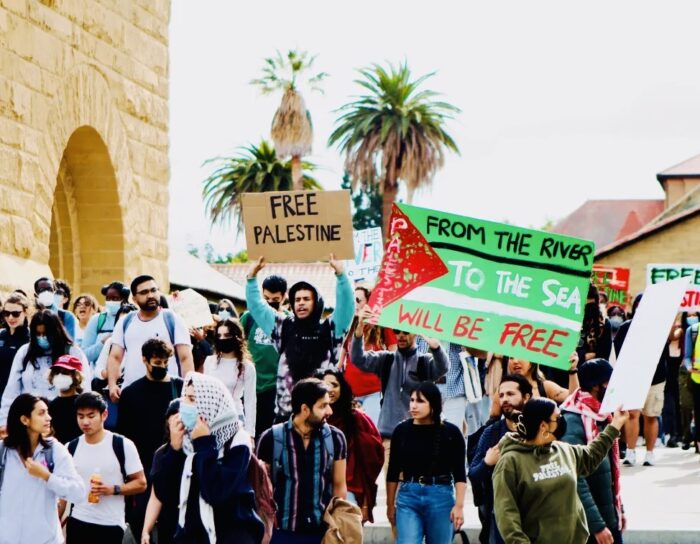McGill University has finally cracked down on Palestinian students and their supporters who create chaos on campus.
Earlier this month, the Montreal university terminated its contractual relationship with the Students’ Society of McGill (SSMU) following a three-day anti-Israel strike that led to vandalism and a disruption of classes.
On April 11, McGill went one step further. It asked the Quebec Superior Court to impose an injunction against Students for Palestine’s Honor and Resistance, a pro-Palestinian student group that is accused of fuelling unrest, intimidating staff and students, and obstructing academic life ahead of exam period. The injunction would prohibit protesters from coming within five meters of university buildings disrupting academic activities, or intimidating members of the university community.
The turmoil that has convulsed McGill since last year prompted its interim deputy provost, Angela Campbell, to sever relations with SSMU, which provides resources and services for more than 20,000 undergraduates and operates independently from the university.
During the unauthorized strike, dozens of classes were blocked or interrupted, a window was smashed, and red paint was sprayed outside and inside a university office.
The vandals who committed these offences not only hate Israel, but call for its eradication. Viewed from this perspective, they are no different than the rowdy pro-Hamas activists who set up illegal encampments, intimidated Jewish students, and occupied university buildings at universities across Canada and the United States in 2024.

Running amok in the name of free speech, they occupied and blocked off public areas, damaged private property, demanded the academic boycott of Israeli universities, and called for university divestments from Israel.
The demonstrators who caused havoc at McGill left Campbell no alternative but to take a stand. While acknowledging that the SSMU has provided valuable services for students, she exposed it as an organization complicit in the strike. SSMU’s leadership, she correctly pointed out, did not distance itself from protesters who endorsed or participated in “acts of vandalism, intimidation, and obstruction as forms of activism.”
“Protest is indeed part of university life,” she added. “Our policies and the law protect peaceful assembly and freedom of expression. But vandalism, obstruction, threats, and violence do not fall within these protections. They violate our collective values and our policies, and they damage the trust and safety of our community.”
The SSMU, she went on to say, could have issued a directive against the strike, but chose to remain conspicuously silent.

“The result was a campus environment in which dozens of classes were blocked or interrupted. Students and instructors were unable to teach or learn. Many felt threatened, intimidated, and unsafe. This culminated in an incident in which individuals smashed a glass office door using a fire hydrant filled with red paint. The paint was sprayed throughout the office while staff were inside. One staff member was hit directly.
“No one at McGill should ever have to experience this at their place of work or study. This behavior is unacceptable, and I denounce it in the strongest possible terms. These tactics do nothing to support or advance the causes they purport to advance.”
In an allusion to Jewish students, she said, “They divide our community and threaten to foment hate against groups who are already vulnerable.”
And in a parting shot, Campbell said that “a commitment to peaceful protest must be demonstrated not just in words but in practice. The university will continue to prioritize the safety and well-being of all members of our community as we move forward.”
Campbell is ready to enter into a mediation process with the SSMU “in the spirit of resolution.” Its president, Dymetri Taylor, believes that such talks, if started soon, could last until June.
In the meantime, said Campbell, McGill will ensure that “students will continue to have strong, democratic representation and uninterrupted access to critical services,” regardless of the outcome of mediation.

